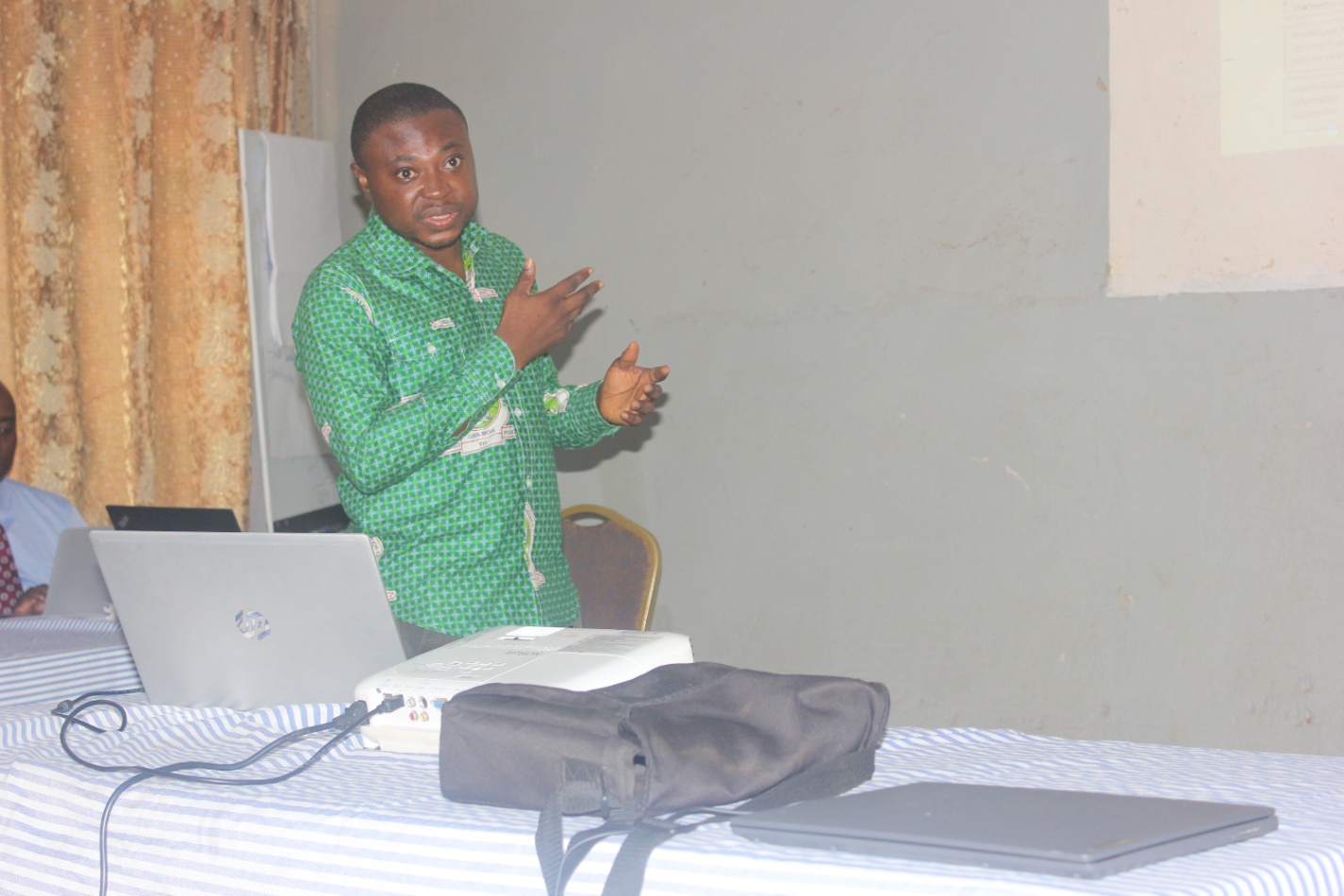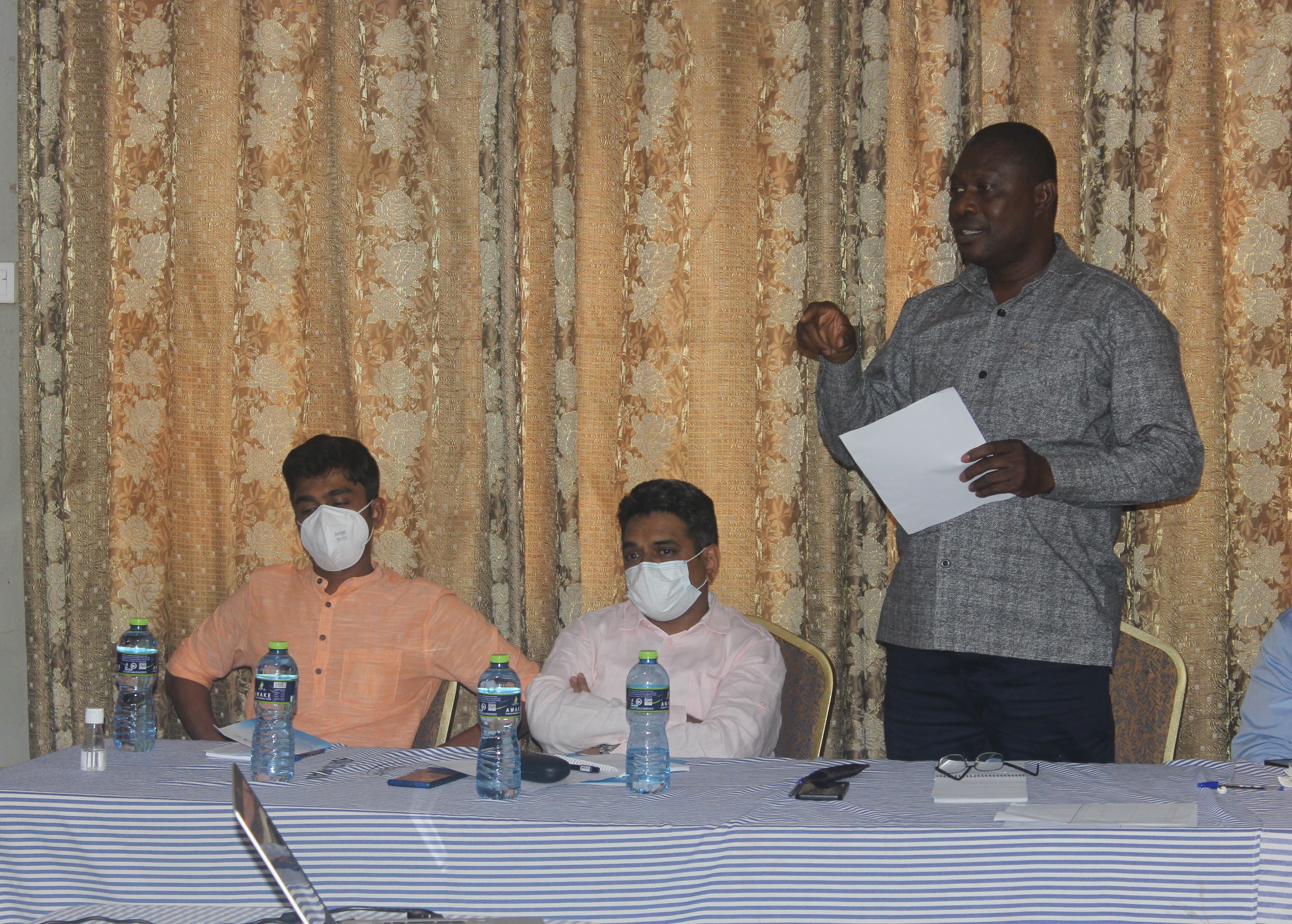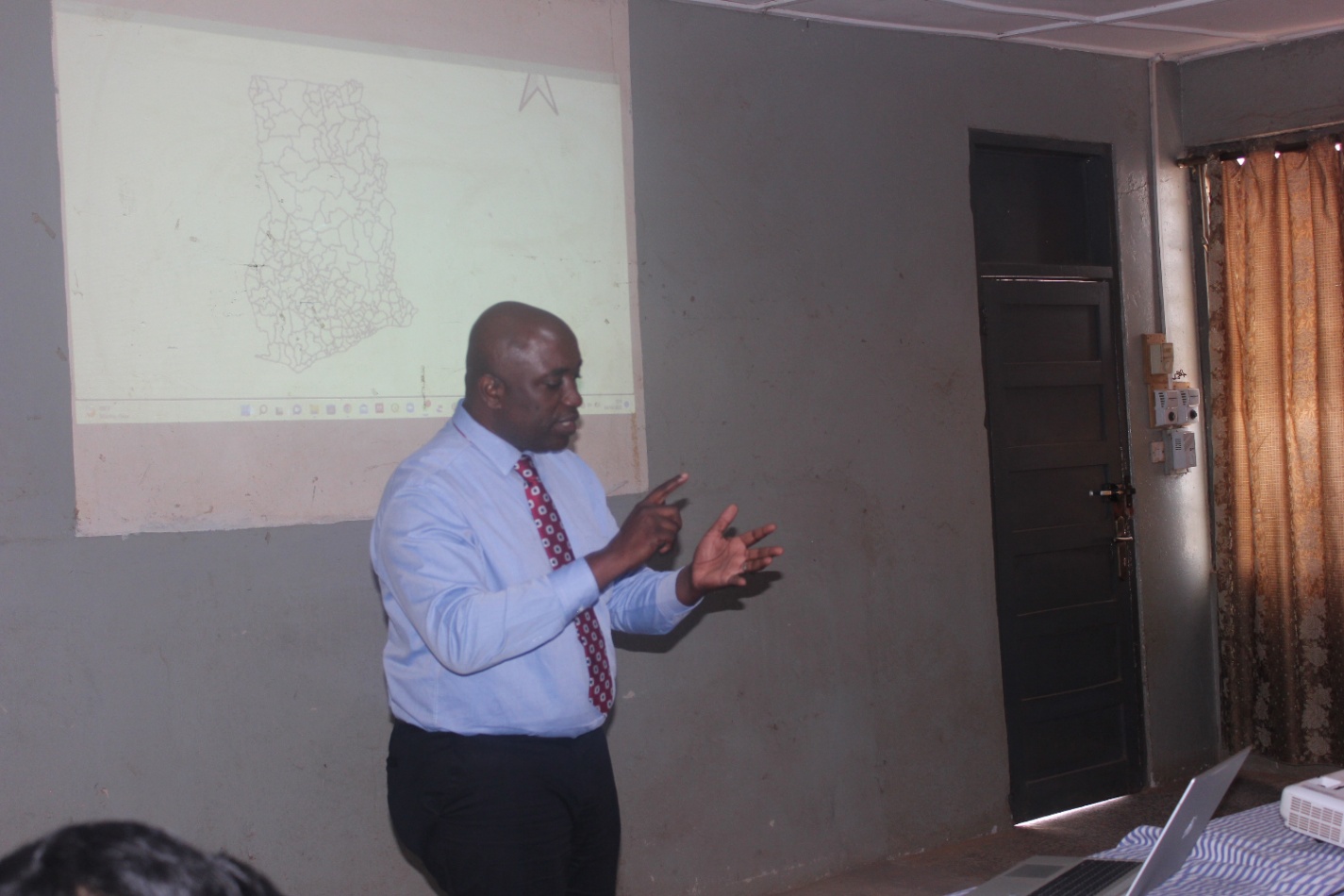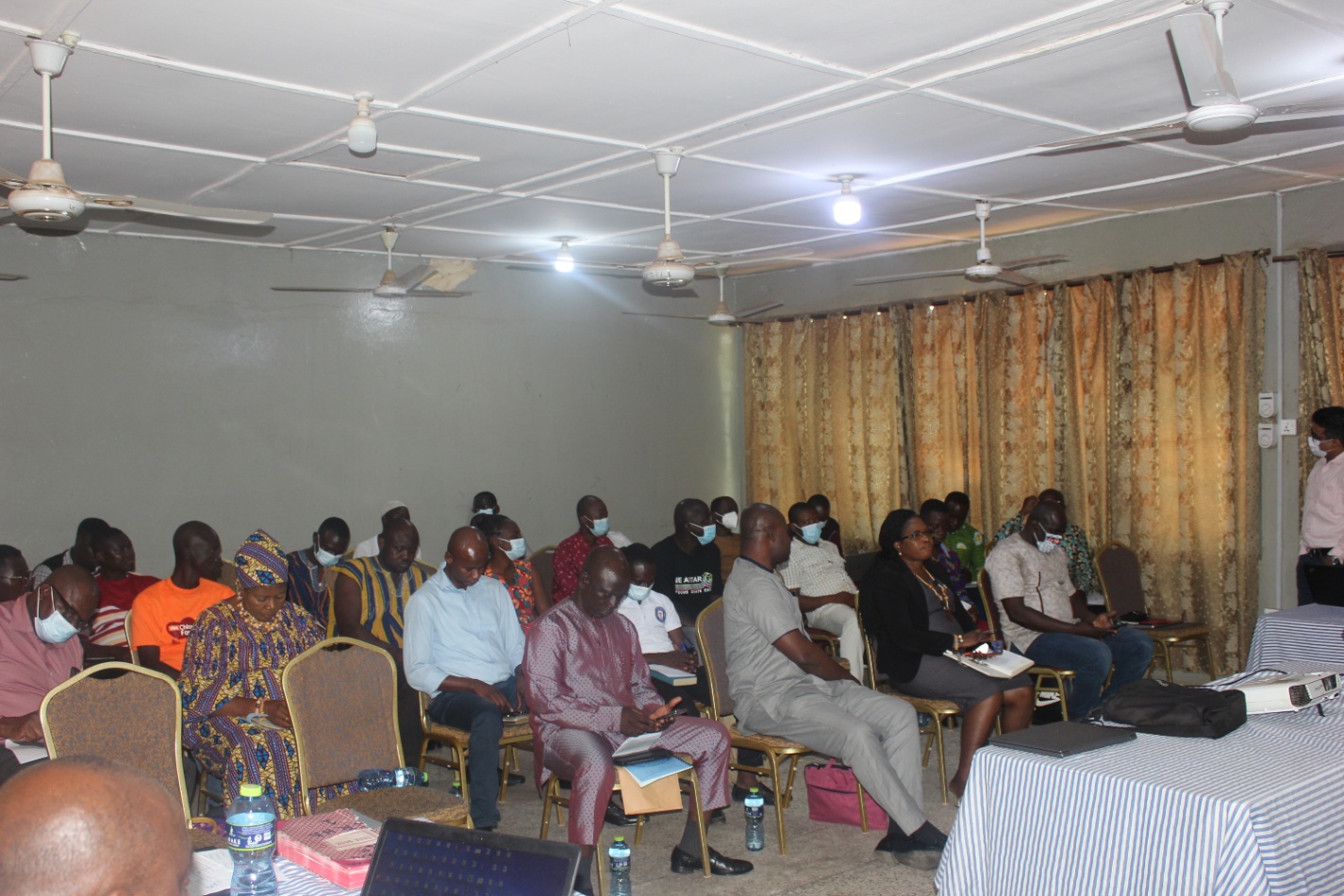Normadic Study Desiminates Finding
October 10, 2022 | News | Reading time: 4 min
The Nomadic study team in the Kintampo Health Research Centre (KHRC) on October 4, 2022 held a one-day forum in Damango, Savannah Region to disseminate the study findings.
The study, which was conducted in collaboration with UNICEF, Ghana sought to explore the health seeking behaviors and develop pathways for improving vaccination among nomadic populations in Ghana. The study was conducted in selected districts in the Upper west, Savannah, Bono East, and Ashanti regions of Ghana. Dr. Afari-Asiedu presented the findings on behalf of the team.
In his presentation, Dr. Afari-Asiedu revealed that nomads in the local communities are mostly involved in vaccination, but it is a challenge for those who stay in settlements far away from the communities. Consequently, Health workers need logistics specifically, motorbikes to be able to reach out to nomads.

Dr.Samuel Afari during his presentation
The study findings also showed that nomads get involved in vaccinations when they perceive a disease to be common and widespread like covid-19. It is therefore important to intensify health education and set vaccination centres at strategic locations closer to the nomadic settlements.
The study further revealed important pathways for improving Social Behaviour Change Communication strategies for vaccination among nomads. These include the use of specific days, specifically Fridays for vaccination, involving nomads in discussions on radio and information centres, use of nomadic leadership, community volunteers and butchers.
Finding from this study contributed to the development of a framework for improving vaccination among nomads using the WHO health system building blocks. In conclusion, it was emphasized that, it is possible to improve on vaccination among nomadic population.
In his opening remarks, Dr. Mrunal Shetye, Chief health and nutrition at UNICEF Ghana country office, noted that, an observation of the rapid immunization rounds conducted since the outbreak of yellow fever in October last year revealed that coverage did not reach communities who were not stable. UNICEF therefore saw the need to invest resources to identify these migrants, their migrating factors and eventually design a health programme that will cater for them “not just for yellow fever but also for any other disease out there”.
Dr. Chrysantus Kubio, Savannah Regional Director of health services in his remarks highlighted the need to assess the health seeking behavior of vulnerable groups such a nomads. He added that the dissemination of the study findings will provide an opportunity for interventions to improve on vaccinations among nomads.

Dr. Chrysantus Kubio, Savannah Regional Director of health services
Dr. Kwaku Poku Asante, Director of KHRC in his address reiterated the aim of the Research and Development Division of the Ghana Health Service which is to conduct research that makes “impact on the services that are delivered to the people it serves”. He recounted the role the research centres under of the Research and Development Division of Ghana Health Service (Kintampo, Dodowa and Navrongo Health Research Centres) have played in informing policy. He expressed the centre’s excitement at UNICEF's invitation to support the investigation and the planning to control the outbreak.

KHRC's Director Dr.Kwaku Poku Asante
The team after disseminating the findings had a discussions with the stakeholders to solicit their comments and suggestions on the emerging framework for improving vaccination among nomads.

In his closing remarks, Dr. Mmrunel indicated that through the dissemination exercise, stakeholders are better informed about these hard to reach populations based on evidence from research. He appreciated the good work done by KHRC, Ghana Health Service and all stakeholders. He pledged the unflinching support of UNICEF for improving on health service delivery in Ghana.
In an interview with some stakeholders present at the dissemination forum, they noted that there were some gaps in reaching out to nomads and the dissemination exercise provided some inputs as to how to reach them. They mentioned that the findings on leadership and governance are key to improving on vaccination among nomads. According to the District Directors present at the dissemination, this engagement will open up opportunities for interventions to be made.
